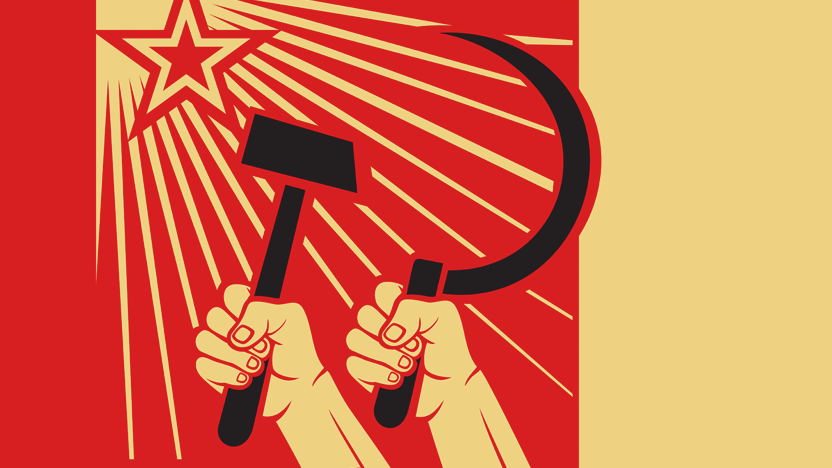2017: The Soviet Century: 100 Years of the Russian Revolution

This symposium marks the centenary of the revolution by exploring some of the key questions that surround 1917 and its aftermath.
The 1917 Russian Revolution fundamentally transformed the global landscape, ushering in a new era of human history. Its effects continue to reverberate in the contemporary world. Despite its historical centrality, however, there is no single accepted narrative of the Russian Revolution and its meaning; interpretations have ranged drastically depending on the individual political views, social background, nationality, and temporality of the respondents. From the “Glorious October Revolution” celebrated in Soviet school textbooks to the “Red Menace” that loomed over Cold War–era America; from the kitschy souvenirs purchased by post-Soviet tourists in former East Bloc countries to the recent mixed responses to the death of Cuban Communist leader Fidel Castro, the significance of 1917 continues to elicit intense debate and reinterpretation.
This symposium marks the centenary of the revolution by exploring some of the key questions that surround 1917 and its aftermath. What was the Russian Revolution? What were the causes of this historical rupture? How was the revolution “lived” by participants, bystanders, and victims? How was the revolution translated into art, culture, politics, and economics? How did the “Soviet Experiment” translate into other cultural and historical contexts? Finally, as a moment of crisis, what can 1917 tell us about our own historical present? What are its legacies for us today?
2017 Clifford Symposium Schedule of Events
Susan Buck-Morss, Distinguished Professor of Political Science at CUNY Graduate Center and Jan Rock Zubrow ’77 Professor Emerita of Government at Cornell University
MCA, Robison Hall
Discussion by former participants of the Middlebury School in the Soviet Union, with dinner at Stolovaya No. 6
Atwater Dining Hall
Introductory remarks by Maria Hofmann, Middlebury College
Documentary filmmakers Michael Tucker and Petra Epperlein return to former East Germany to investigate the suicide of Epperlein’s father, who may have been a spy for the Stasi security service. A compelling and personal account of the 20th-century surveillance state and its legacies today.
Friday, September 22
Theatre Department presents a scene from Vsevolod Vishnevsky’s 1933 play Optimistic Tragedy
10:00 a.m.
Theatre Department presents a scene from Vsevolod Vishnevsky’s 1933 play Optimistic Tragedy
Panel: “Art and Revolution”
Discussions of the revolution and its manifestations in Russian music and literature
Michael Katz, Middlebury College: “Visions of Terror: Boris Savinkov and the Russian Revolution”
Matthew Bengtson, University of Michigan: “Music and Revolution”
Steven Richmond, Johns Hopkins University: “Soviet Censorship of Literature and the Arts, 1917–1936”
Discussants: Tim Portice, Middlebury College; Matthew Walker, Middlebury College
Welcome address by President Laurie Patton
Mark Steinberg, Professor of History, University of Illinois at Urbana-Champaign
Friday, September 22
Exhibition and opening reception for The Soviet Century: 100 Years of the Russian Revolution at the Middlebury College Museum of Art
Join us for light refreshments and the chance to view this installation of highlights from the museum’s holdings of Russian art, including photographs, luxury items by the firm of Fabergé, and a recently acquired Soviet poster.
Brief remarks at 6:30 p.m.
Friday, September 22
Concert/lecture/recital: “Music in Revolutionary Russia: Rachmaninoff, Medtner, Scriabin”
Featuring Matthew Bengtson, University of Michigan, and Rebecca Mitchell, Middlebury College
Saturday, September 23
The Black Vanguard of Internationalism: C. L. R. James and the Black Radical Response to 1917
Minkah Makalani, Associate Professor of African and African Diaspora Studies at the University of Texas at Austin
Historians discuss the reception of Communist ideas in Japan, East Germany, and France
- Nicholas Clifford, Middlebury College: “The Chairman’s New Paris Fashions, 1966–1980”
- Max Ward, Middlebury College: “Translating the Revolution in Interwar Japan: Japanese Police Manuals on Political Crime”
- Andrew Demshuk, American University: “1968 in Leipzig and the Demolition of Belief in Communism”
- Discussant: James Ralph, Middlebury College
Middlebury faculty discuss life under Communism
- Kevin Moss: “Enemies of the People”
- Sergei Davydov: “1917, 1945, 1968”
- Nikolina Dobreva: “Exit Visa”
- Roberto Veguez: “Why I Left”
- Ioana Uricaru: “Ideology and Ethics”
- Tatiana Smorodinska: “Homo Sovieticus”
Closing address
Andrea Lloyd, VP for Academic Affairs and Dean of Faculty
Closing keynote address: “The Soviet Economy, 1917–1991: Its Life and Afterlife”
Mark Harrison, Professor, Department of Economics, University of Warwick
Ongoing throughout the symposium
Middlebury Museum of Art exhibition: The Soviet Century: 100 Years of the Russian Revolution This installation of highlights from the museum’s holdings of Russian art includes photographs, luxury items by the firm of Fabergé, and a recently acquired Soviet poster.
Mahaney Center for the Arts
Middlebury College Museum of Art
Soviet Poster Exhibit
Davis Family Library Atrium

